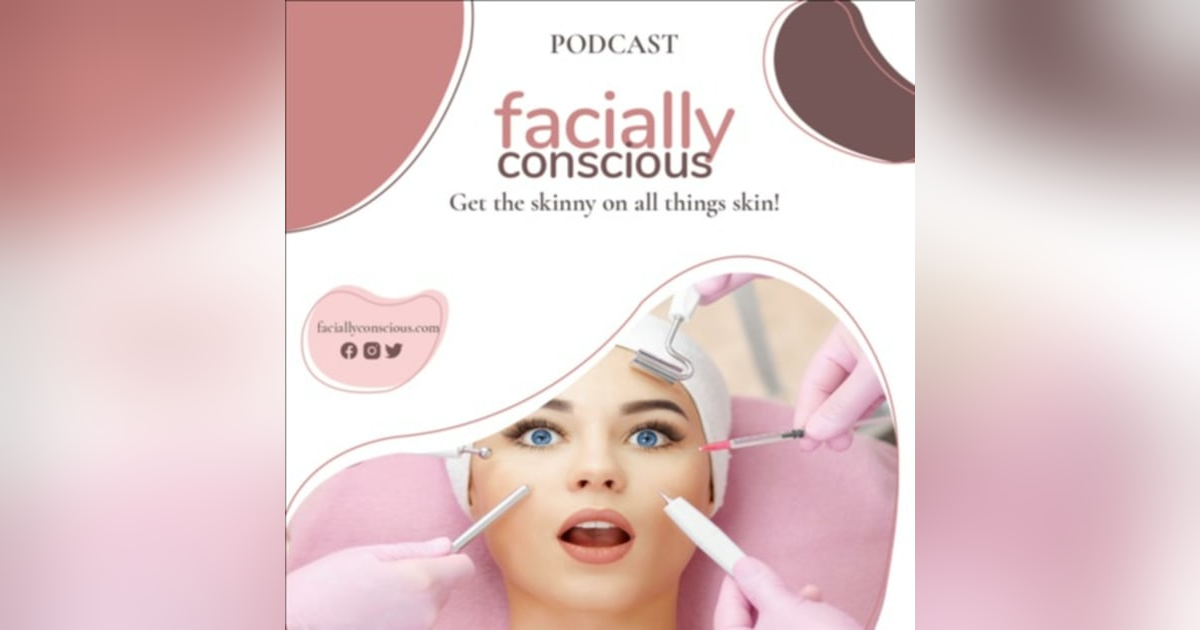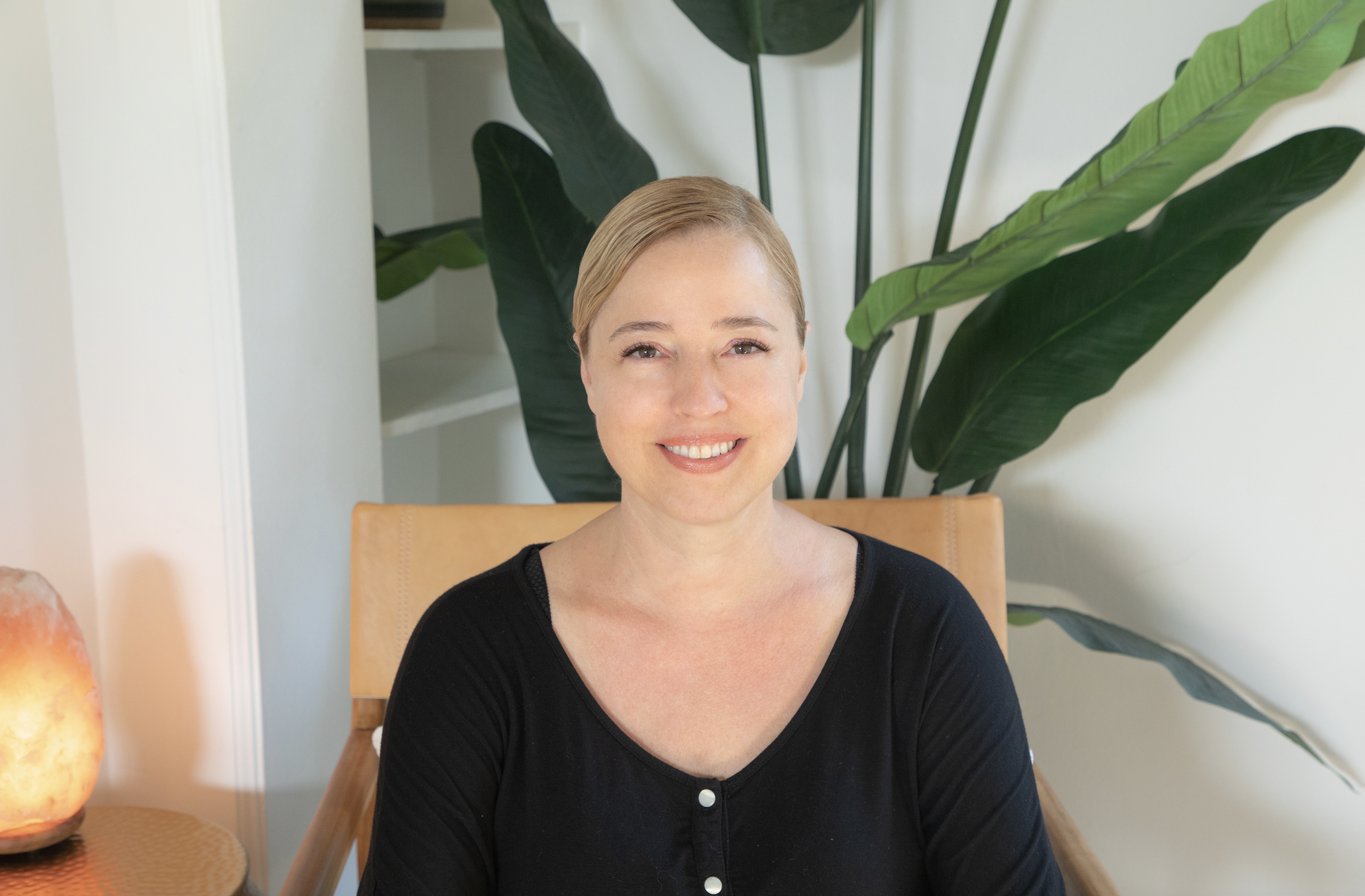The Psychology Behind Beauty: How Social Media Shapes Our Self-Image

In our latest episode of Facially Conscious, we delved into a topic I have been eager to discuss for years: the psychological impact of social media on beauty standards and self-esteem. As an esthetician working in Los Angeles, I witness firsthand how unrealistic beauty expectations affect my clients—and even my own teenage daughter.
The Expert Perspective
We were fortunate to have Dr. Sarah Dihmes, a psychologist specializing in self-esteem and identity, join us for this critical conversation. Dr. Dihmes brings impressive credentials from Johns Hopkins and Stanford, along with years of experience helping adults, teens, and parents navigate the complex relationship between appearance and self-worth.
What struck me most was Dr. Dihmes' personal connection to this topic. During her dissertation research with breast cancer patients, she discovered something profound: even before implementing planned interventions, simply assisting these women with basic skincare and makeup techniques to address treatment side effects significantly improved their self-esteem measures.
"We learned that it's not just about how you look, but how you feel about the way you look that can be really powerful," Dr. Dihmes explained. For these women facing tremendous life changes, reclaiming this small part of their identity provided a crucial foundation during an otherwise overwhelming time.
The Social Media Effect
The conversation quickly turned to how social media platforms have dramatically altered beauty standards and expectations. Dr. Dihmes noted a disturbing trend: beauty obsessions increasingly affect younger audiences. She shared that 75% of plastic surgeons reported seeing a "Zoom boom" during COVID, with clients under 30 seeking procedures at unprecedented rates.
What's particularly concerning is how these platforms create a sense of inferiority through constant comparison. Dr. Dihmes pointed out that young people are "looking to influencers to see what it takes to be valued, respected, confident, and loved." These influencers often use filters and editing tools to present an unattainable standard that leaves followers feeling inadequate.
The Late-Night Vulnerability
One fascinating insight from our conversation was about the timing of social media use. Dr. Dihmes mentioned receiving distressed messages from clients at 2:00 AM after they had fallen into social media comparison spirals. Dr. Vicki Rapaport, our dermatologist co-host, confirmed this phenomenon, noting that middle school educators specifically warn parents about nighttime device use.
"There's something about the brain at night," Dr. Vicki explained. Dr. Dihmes added that our brains process information differently during those hours when we should restore our bodies and not engage with content that triggers comparison and self-doubt.
The Parenting Challenge
As a mother of a teenager, this conversation hit particularly close to home. I shared my frustration about my daughter wanting to use retinol and other inappropriate skincare products she discovers through social media. "I come into her bedroom and I'm like, 'What is this? Where did you get this? I am an esthetician,'" I recounted during our discussion.
The reality is that today's parents face unprecedented challenges. Even when we restrict specific platforms, our children are exposed to these influences through friends. As I mentioned on the podcast, "You can't take it away from the kids these days. You can't control it."
Professional Frustrations
Dr. Vicki and I shared our professional frustrations with social media's influence. Dr. Vicki told a story about spending significant time creating a personalized skincare regimen for a 30-year-old patient, only to have the patient tell the receptionist she was going to "use what they tell me to use on TikTok" instead.
Similarly, I encounter clients who come to me with misconceptions and unrealistic expectations based on what they've seen online. The influencers promoting these products often have no training or expertise—they're simply "spewing marketing words," as I put it during our conversation.
Finding Balance and Building Self-Esteem
Despite these challenges, Dr. Dihmes offered some hopeful perspectives. She explained that self-esteem consists of five key components:
- Feeling competent in various life areas
- Having a sense of belonging
- Developing a strong identity
- Building confidence and self-reliance
- Establishing feelings of safety and security
She suggested incorporating positive affirmations into daily skincare routines: "Since you're already looking in the mirror, pairing that with some kind of affirmation, like, 'Hey, girl, how are you?' Or 'There she is. You are good enough."
Dr. Dihmes beautifully articulated that while appearance is one aspect of self-expression, it's merely "the packaging, but it's really not who you are." She encouraged listeners to love their whole selves—"your values, your interests, your hobbies, your friendships, your profession, your passions, as well as what you look like."
Moving Forward
This conversation reinforced my belief that we need to be more mindful about how we engage with beauty content online. As professionals in the skincare industry, we have a responsibility to provide evidence-based information and realistic expectations to counter the often misleading messages on social media.
For parents, this means having ongoing conversations with our children about media literacy and self-worth. For practitioners, it means educating our clients about what's truly beneficial versus what's simply trending. And for all of us, it means remembering that true beauty encompasses far more than what's visible on the surface.
Listen to our whole conversation with Dr. Sarah Dihmes on Psycho-aesthetics in social media: unrealistic expectations and impacts on Self-esteem for more insights on navigating beauty in the digital age.
To read more from Trina Reneá join her on Substack








